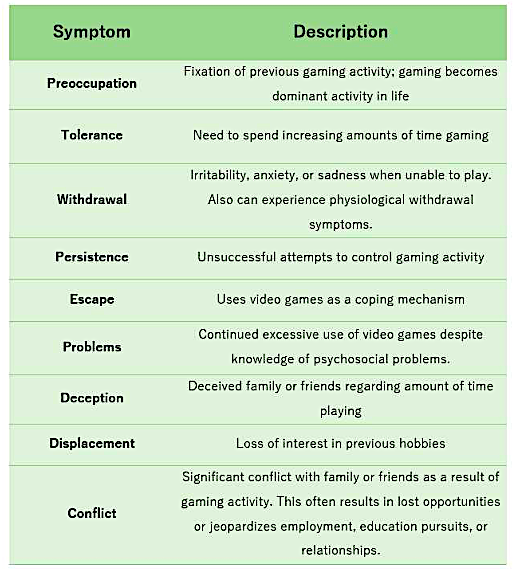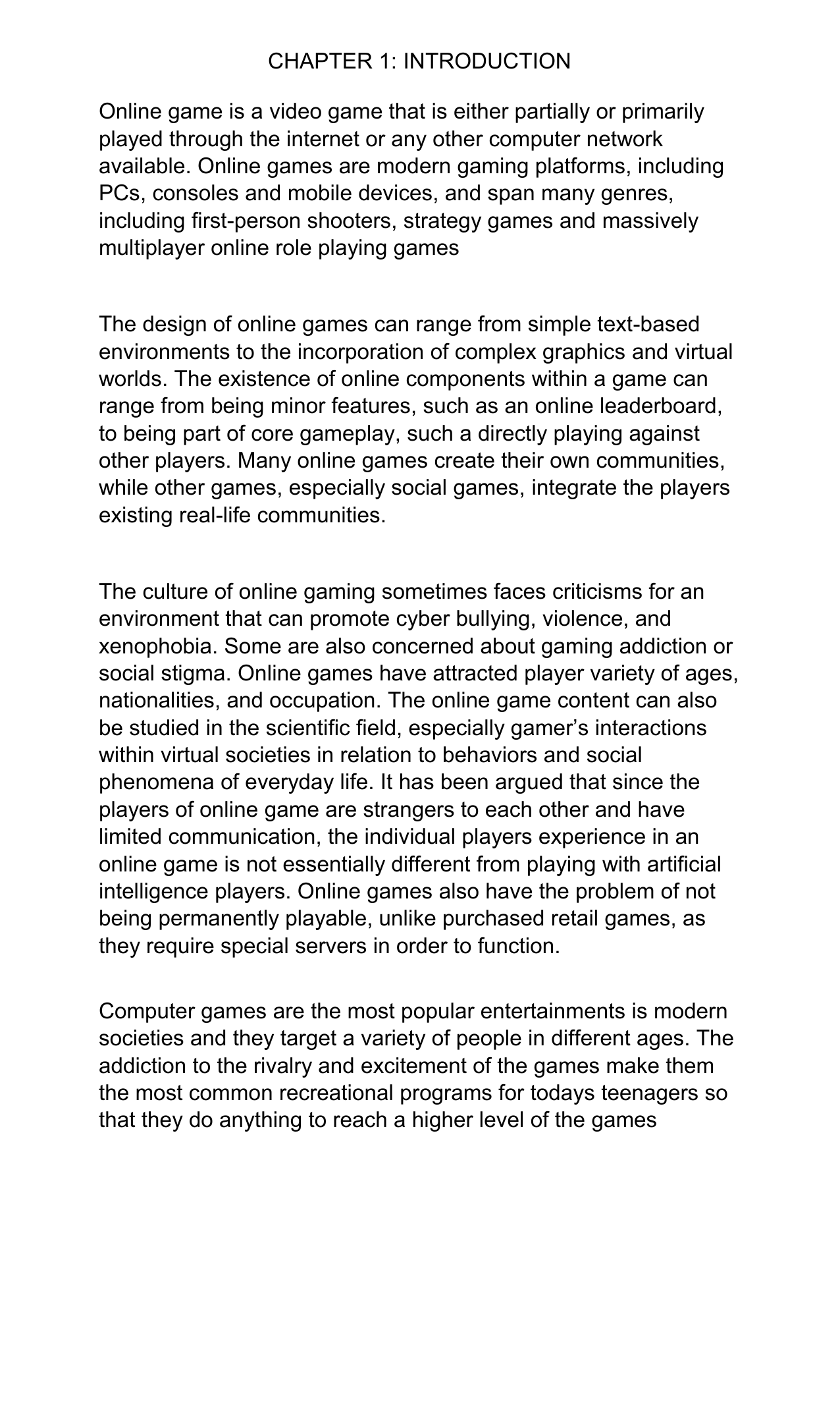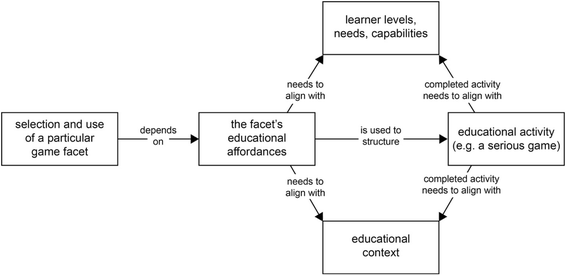Computer game addiction, also known as video game addiction or gaming disorder, refers to the excessive or compulsive use of computer and video games that can interfere with an individual's daily life. According to the World Health Organization (WHO), gaming disorder is characterized by a pattern of persistent or recurrent gaming behavior that is so severe that it takes priority over other life interests and daily activities.
There are several theories that have been proposed to explain the development of computer game addiction. One theory is based on the concept of operant conditioning, which suggests that individuals may become addicted to computer games because they are reinforced by rewards such as points, levels, and achievements. These rewards can create a sense of accomplishment and pleasure, which may drive individuals to continue playing in order to experience these rewards again.
Another theory is based on the concept of social learning, which suggests that individuals may become addicted to computer games because they observe and imitate the behavior of others who are already addicted. This may be particularly true for individuals who are exposed to others who spend a lot of time playing computer games, such as friends or family members.
A third theory is based on the concept of cognitive-behavioral therapy, which suggests that individuals may become addicted to computer games because they use them as a coping mechanism to deal with negative emotions or stress. For example, an individual who is struggling with anxiety or depression may turn to computer games as a way to escape from their problems and feel temporarily better.
Despite these theories, it is important to note that computer game addiction is a complex issue and there is no single cause. It is likely that a combination of factors, such as genetics, environmental influences, and individual psychology, contribute to the development of this disorder.
Treatment for computer game addiction typically involves a combination of therapy, medication, and lifestyle changes. Therapy may involve cognitive-behavioral therapy, which helps individuals identify and change negative thought patterns and behaviors related to their addiction. Medication, such as antidepressants or antipsychotics, may be helpful for individuals who are struggling with underlying mental health issues that contribute to their addiction. Lifestyle changes may include setting limits on game time, finding alternative activities to engage in, and seeking support from friends and family.
In conclusion, computer game addiction is a serious disorder that can interfere with an individual's daily life and well-being. While there are several theories that have been proposed to explain its development, it is likely that a combination of factors contribute to this disorder. Treatment for computer game addiction typically involves a combination of therapy, medication, and lifestyle changes.







